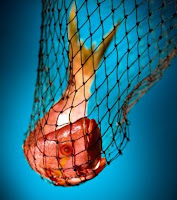US Fishers for the First Time Since 1900 Won't Overfish
The United State's top fishing experts say that for the first time since at least 1900, US fishers won't take too much of any species from the sea.
 Scientist Steve Murawski, who retired as chief scientist at the National Oceanic and Atmospheric Administration's Fisheries Service last week, said: "As far as we know, we've hit the right levels, which is a milestone. And this isn't just a decadal milestone, this is a century phenomenon."
Scientist Steve Murawski, who retired as chief scientist at the National Oceanic and Atmospheric Administration's Fisheries Service last week, said: "As far as we know, we've hit the right levels, which is a milestone. And this isn't just a decadal milestone, this is a century phenomenon."
Murawski says that it also signals the coming of increasingly healthy stocks and better days ahead for fishers who have suffered financially. The fleets in New England have deteriorated since the mid 1990s, dropping from 1,200 boats to about 580. Murawski believes that the worst times have passed.
And end to overfishing, however, doesn't mean that all stocks are healthy but scientists believe that it's an important first step to getting there. When a species is overfished, fishers are catching them at a rate that scientists believe is too fast to ensure the species can rebuild and stay healthy.
In 2007 a reauthorization of the nation's fisheries law, the Magnuson-Stevens Act, included a mandate to end overfishing by the 2010 fishing year, which concludes at different times in 2011 depending on the region. The US is the only country that has a law that defines overfishing and requires its fishers not to engage in it. He says:
"When you compare the United States with the European Union, with Asian countries, et cetera, we are the only industrialized fishing nation who actually has succeeded in ending overfishing,"
Under the new rules, fishers in New England work in groups called sectors to divide an annual quota of groundfish, which include cod, haddock and flounder. Should they surpass their limits on one species, they must stop fishing on all species. Federal data earlier this year indicated that New England fishers were on pace to catch fewer than their allotted fish in all but one stock, Georges Bank winter flounder. Murawski says that he did not expect fishers to exceed their quota on any stock.
Regulators also believe that in other regions with overfishing, including the Gulf of Mexico, South Atlantic and Caribbean, catch limits and other measures will end overfishing this year.
Detailed stock assessments will give the final verification that overfishing has ended nationwide.Read More ...
skip to main |
skip to sidebar
this blog interest about: fish culture,fishing sport.fish production,fish market,fishing vessel,fishing boat, tips fishing,fish behavior,fishing news,info and journal fishing tour,fishing game.sea environtmen.fish news
onlines traffic
Labels
Conservation
(36)
Japan
(48)
environment
(120)
fish news
(145)
fish production
(162)
fisheries market
(125)
fisherman
(51)
fishing boats
(63)
fishing game
(30)
fishing news
(396)
fishing product
(45)
fishing sport
(305)
fishing story
(119)
fishing teknology
(38)
fishing tips
(100)
fishing tours
(55)
fly fishing news
(20)
india
(16)
Blog Archive
Footer Widget 1
Footer Widget 2
Footer Widget 3
Copyright © 2011 LAWOK LEPAS | Powered by Blogger
Design by Free WordPress Themes | Bloggerized by Lasantha - Premium Blogger Themes | Best WordPress Themes





0 comments:
Post a Comment